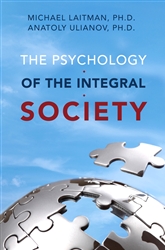
Dr. Anatoly Ulianov: If we take a regular, traditional game, immediately a stereotype arises, the idea that it is a competition, and in the end one side will win and the other will lose.
When you talk about “winning” the global, integral game, what do you mean? What is the objective and result of the game?
Dr. Michael Laitman: The objective is not to act in a way that is doomed to fail because it is totally disconnected from the actions that are instilled in Nature, and which Nature will carry out anyhow.
If we act in even a slightly different direction from Nature, we will suffer to the extent of our deviation from Nature’s program. If I deviate 10 degrees from nature’s integral law of development, or if I stray 20 or 30 degrees, then there will be earthquakes, tsunamis, hurricanes, financial catastrophes, or even wars.
If we started studying ourselves in relation to the integral governance under which we exist today, we could prevent many catastrophes and would gradually learn to feel and analyze our actions, to discern whether they are desirable or not. An old maxim says, “If you don’t know how to act, it is best if you sit and don’t act at all,” because by acting without knowing how, you stray from the right course, whereas by not acting, you just passively flow with the movement.
The above points were taken from the book The Psychology of the Integral Society by Dr. Michael Laitman and Dr. Anatoly Ulianov. Also available as eBook (PDF, Kindle & ePub formats).

